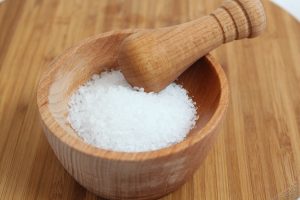 Obesity has reached epidemic levels, even in Houston, TX. Lack of exercise and an unhealthy diet are the primary causes, even though there are others. Most fitness centers, weight loss programs, or personal trainers use exercise or diet as a solution. We focus on both diet and exercise. The food you eat and its preparation are key to weight loss. Highly processed foods are bland. Manufacturers improve flavor by adding salt and sugar. Most people understand how sugar adds pounds but fail to realize that salt can also sabotage weight loss efforts.
Obesity has reached epidemic levels, even in Houston, TX. Lack of exercise and an unhealthy diet are the primary causes, even though there are others. Most fitness centers, weight loss programs, or personal trainers use exercise or diet as a solution. We focus on both diet and exercise. The food you eat and its preparation are key to weight loss. Highly processed foods are bland. Manufacturers improve flavor by adding salt and sugar. Most people understand how sugar adds pounds but fail to realize that salt can also sabotage weight loss efforts.
Salt causes fluid retention and added weight.
Water retention can occur due to hormonal changes, but excess sodium from too much salt can also cause it. Salt’s chemical formula is NaCl===sodium chloride. The body needs sodium to help regulate the body’s balance of water, but too much can cause a problem. If you become dehydrated, the sodium content of the blood increases. The body hoards water to maintain sodium balance, causing edema and weight gain. Drinking more water or consuming less salt can prevent it or correct the problem.
Studies found that people with a high salt diet drank less water.
Studies on the effects of salt are conducted in many areas from health and nutrition to space travel and nutrition. One Russian study focused on how salt affected the bodies of Russian cosmonauts-in-training. The trainees were given a consistent diet except for one variable—the amount of salt it contained. They started with a diet that doubled the recommended amount of salt to 12 grams. The cosmonauts spent weeks on this high-sodium diet. The scientists reduced the amount to 9 grams for an equal time. The final phase was reducing salt to the recommended 6 grams a day.
That experiment tracked many things.
Besides tracking blood pressure and other bodily functions, it also followed hunger levels. When salt content was high, the cosmonauts were constantly hungry. As the scientists lowered the amount of salt, hunger diminished. Since the only variable was salt, they concluded salt made the difference. Other studies found that people who consume too much salt don’t drink more water but tend to eat more. It may be due to the body confusing thirst for hunger. Another study in Australia backed the findings by studying school children. It found children with diets higher in salt had a higher rate of obesity.
- Studies show that when people did drink more because of salt, many drank sugary soft drinks, adding even more calories to their diet.
- A study in Australia following people of all ages found that people who consumed a diet high in salt consumed 11% more calories than those that didn’t.
- In addition to weight gain, salt can contribute to other health issues. It’s associated with an increased risk of high blood pressure, stomach cancer, and heart disease.
- One easy way to reduce the amount of sodium and salt in your diet is to cut out processed foods. Most processed foods contain salt for flavor. You have more control over salt content when you consume whole food.
For more information, contact us today at Rising Fitness Gym
